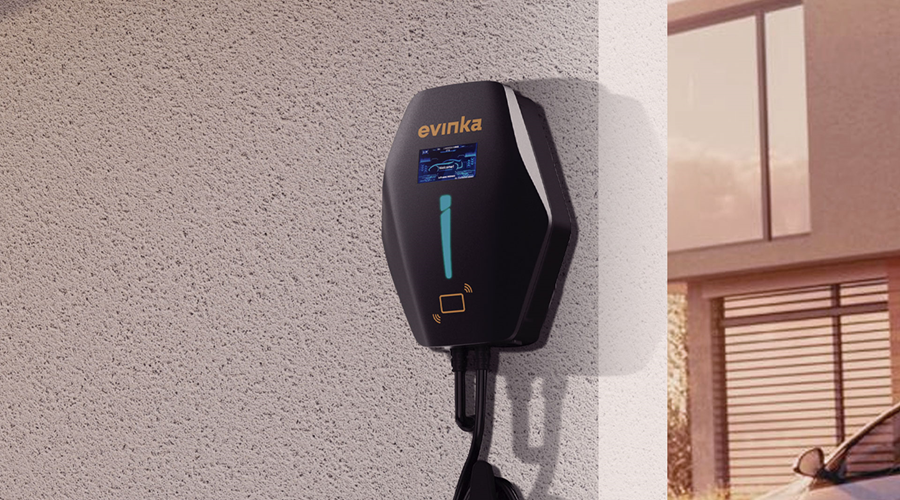Evinka, the Peruvian company that provides smart charging solutions for electric vehicles, is expanding its horizons in Latin America, focusing on the installation of a public charging network in Peru, Colombia, and Ecuador.
“We plan to invest around three million dollars in total to install both fast and slow public charging stations. Our goal is to connect 500 chargers across the three countries by the end of 2025, creating our own charging network,” reveals Julio Antonio Campos Valenzuela, Regional Director for Latin America at Evinka.
Evinka’s presence in the region is not limited to these three countries.
The company currently operates chargers in Paraguay, Uruguay, Bolivia, Venezuela, and Chile.
Although they have not yet established a charging network in Chile, their efforts are focused on industrial projects, such as mining.
In Lima, Peru, they are supplying charging infrastructure for a fleet of 19 electric buses—the largest in the country—in collaboration with Cambio Soluciones.
“Our goal is to expand, and by the end of 2025, if all goes well, we plan to launch operations in Brazil and Mexico,” he tells Mobility Portal Latinoamérica.
The State of Charging Infrastructure in Peru
Evinka has seven public charging stations in the country, all of which are slow chargers.
Although there was a fast charging station, it ceased operations due to regulatory barriers that complicated its functioning.
“We are working on a project to implement more fast charging stations, but this time with a platform that includes a payment system and is located in strategic areas that will allow us to reduce energy costs,” he points out.
The company plans to install its first fast charging station in Peru this year.
For next year, it aims to open at least ten new stations, primarily in Lima.
Nonetheless, one of the main challenges facing Peru is the lack of clarity regarding energy billing.
“Currently, no one charges for the charging service in Peru, which causes problems. We want to be the first to implement this model, as we have everything set up, including the platform. The only thing we do not control is the land, so we depend on finding locations that accept our projects to install chargers,” he adds.
Campos Valenzuela states that in Lima, “only two of the approximately six charging stations are operational, which reflects issues with both energy regulation and the lack of clarity regarding charging fees.”
The absence of a regulatory framework that allows for proper billing of consumed electricity leads to several stations ceasing operations, primarily due to the high fixed fees that charger owners must pay, even if the infrastructure is used little.
Evinka seeks to change this business model in Peru by focusing on areas where energy costs are lower and offering agreements with car brands to encourage their users to utilise their stations.
“What we propose is to install the charging stations and ensure that they operate correctly, in addition to implementing a billing system,” he states.
Alien X, the Star Charger of Evinka
Among Evinka’s standout products is the Alien X, a Wallbox-type charger that has gained popularity in Peru, Colombia, and Ecuador thanks to its combination of premium design, advanced connectivity, and competitive pricing.
This charger features WiFi and Bluetooth connectivity, in addition to functioning as a public charger due to its CPP system.
“We are marketing it in Peru for $850. In Colombia and Ecuador, we maintain similar prices. However, next year we will launch an even more innovative product: a fast charger with great installation flexibility,” he reveals.
What is it about? The company plans to launch a modular fast charger for the markets of Peru, Ecuador, and Colombia.
This new product will start with a capacity of 20 kilowatts but will allow scaling up to 80 kilowatts by connecting multiple units, offering flexibility for different charging demands.
Additionally, it will be able to service up to four vehicles simultaneously or concentrate the power on a single vehicle.
Regarding after-sales service, the company ensures that its customers receive quality technical support, with local teams of engineers and technicians in Peru, Colombia, Ecuador, and Chile.
In markets where it does not have offices, such as Bolivia and Paraguay, the company works with local representatives or manages after-sales service remotely, training its clients’ staff to ensure the proper operation of the chargers.
To learn more about electromobility in Latin America, visit Mobility Portal Latinoamérica







